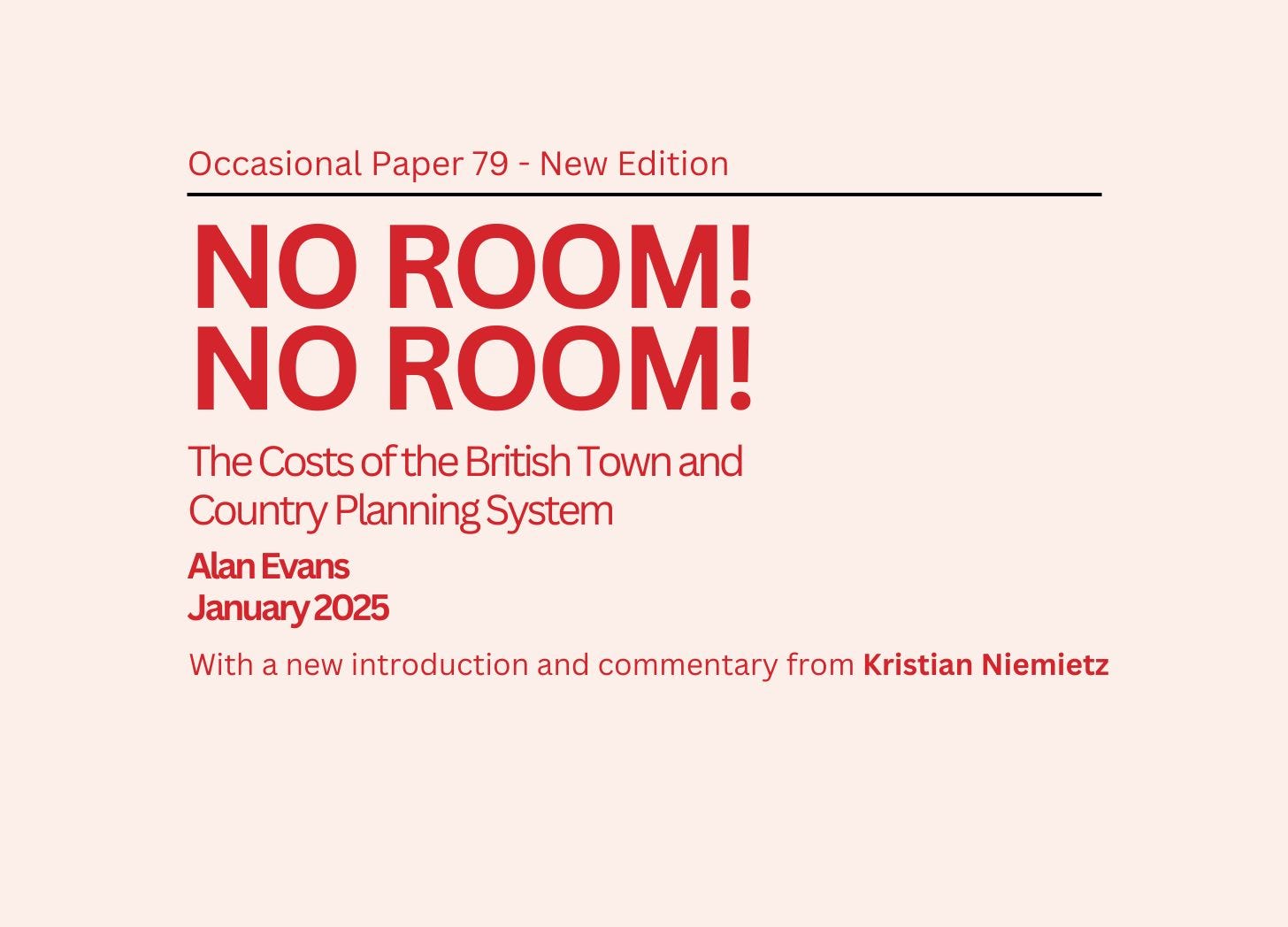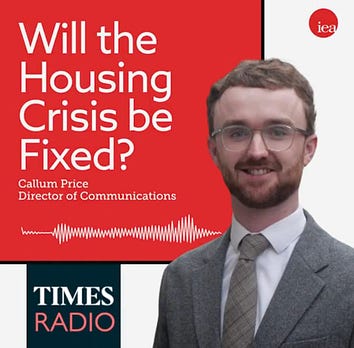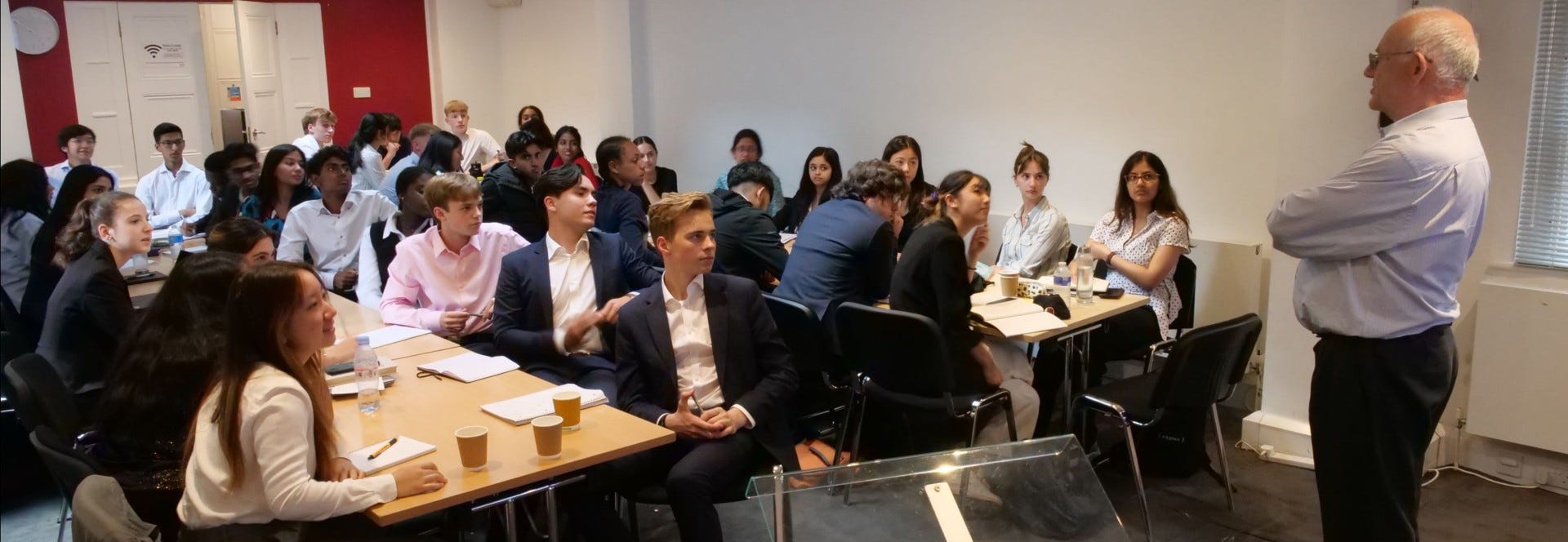|
 |
The Hippocratic method for economic growth
The Chancellor is looking for more ideas for growth. She should first do no harm.
It is fair to say the Government has had a rocky start to the year. Elon Musk’s X posts and the debate around a possible inquiry into grooming gangs has now been superseded on the front pages by developments in the bond markets, as the cost of government borrowing has surged. The yields on ten-year bonds reached their highest level since the financial crash, and on thirty-year bonds the highest since the nineties.
As borrowing costs increase, the limited amount of headroom the Chancellor left herself at the budget (just under £10bn) has been almost entirely eaten up. The Government risks breaking its own self-imposed fiscal rules.
The Government faces a choice: break or amend their fiscal rules, raise taxes, or cut spending. The Treasury has already seemingly ruled out the first. The second is less clear – Rachel Reeves seemed to rule out more tax rises following the budget but has been less eager to make such strong statements since. The third option, to cut spending, they won’t like – but it may be all they’re left with.
That is unless they can magic up more economic growth from somewhere. The Times reported this week that the Chancellor has asked her cabinet colleagues to come up with some ideas to boost growth. Lucky for them, the IEA has loads.
They would do well to start thinking about reducing barriers to growth, instead of creating growth from Whitehall. They must treat the private sector for what it is, the source of sustained growth, rather than a cash-cow there to be milked. Once they do that, they can start working out what is getting in the way of growth.
The harsh reality of asking that question is that they will be left looking into a mirror. Last year’s budget has done nothing for growth, by making it more expensive for businesses to hire new people through tax hikes and minimum wage increases, and easier for them to do very little. Elsewhere the Government’s Employment Rights Bill will add swathes of new burdens to businesses. Taken together, with an added dash of pessimistic messaging, and the prospects for business and the wider economy are looking down.
If the Government wants to try and grow out of the hole they find themselves in, they should take a leaf from Hippocrates’ book: first, do no harm. So instead of asking themselves how might they drive growth, they should ask what are they doing to harm it – and stop.
That would mean putting the breaks on the worst parts of their plans, or ideally dropping them entirely. Then asking what each government department does to hold back growth, and how might they be able to get out of the way a little more.
Only once government minds start thinking in this way will we see a much-needed shift in our economic prospects.
Callum Price
Director of Communications
P.S. The best way to never miss out on IEA work, get access to exclusive content, and support our research and educational programmes is to become a paid IEA Insider.
Executive Director Tom Clougherty, Editorial Director Kristian Niemietz, and Director of Communications Callum Price discuss the economic outlook, NHS reform and the new Schools Bill on the IEA Podcast
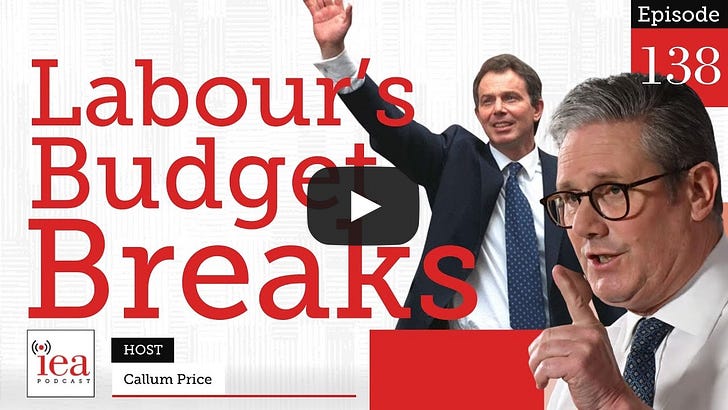
No Room! No Room!
We are proud to have republished the seminal “No Room! No Room! The Costs of the British Town and Country Planning System”, by the late Professor Alan Evans. Originally published in 1988, this hard-hitting analysis of the planning system can be considered the original manifesto of “YIMBYism” and is still just as relevant in 2025.
Britain's housing market is broken, with housing affordability in London so poor that median house prices are nearly 12 times the median annual income. Rent consumes over a third of gross income for private renters in London, and 29% in the West Midlands, the South West, and the South East, leaving little for savings or other essentials. Britain lags dramatically behind its European counterparts in housing supply, with a shortfall of millions of homes.
We have been writing about the housing crisis and the chronic supply shortage since the 1980s, and the same arguments in “No Room! No Room!” apply today.
This edition features a new foreword by Dr Kristian Niemietz, Editorial Director at the IEA, emphasising how the planning system continues to stifle Britain’s housing market and economic growth.
How a 1988 Paper Predicted Today’s Housing Nightmare, Editorial Director and Head of Political Economy Kristian Niemietz, IEA YouTube
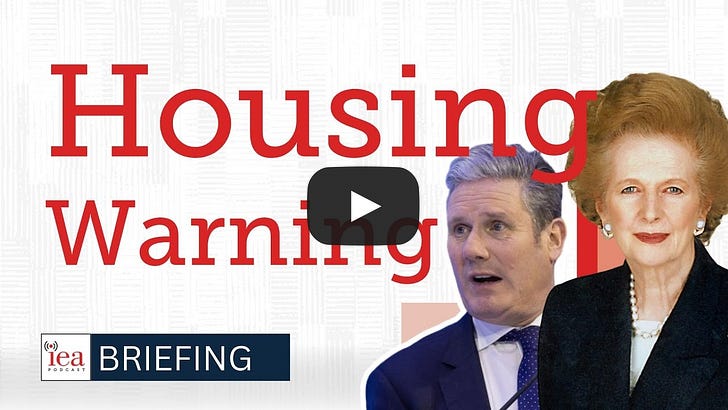
Back to the 80s to fix the housing crisis, IEA Editorial Director and Head of Political Economy Kristian Niemietz, CityAM
News, Views & Upcoming Events
The Best and Worst Economic Decisions of 2024, IEA Podcast
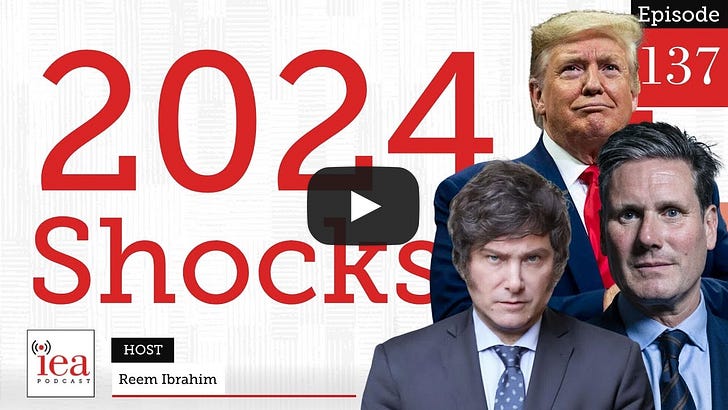
This January, let’s say boo to the nanny state, and let Britain lead Europe for consumer freedom, Head of Lifestyle Economics Chris Snowdon, ConservativeHome
The planning system is not just choking our housing market, but blocking progress across the board, Director of Communications Callum Price, Times Radio
Labour’s NHS reforms are a step not a leap, but in the right direction, Economics and Policy Fellow Matthew Lesh in The Telegraph
An outright ban would be disproportionate, Economics Fellow Julian Jessop quoted on the debate about banning Quantitative Easing, The Express
Calling Students! Apply to be a Future Thought Leader
The IEA offers a wide range of programmes for students of all ages and levels of study. Whether you’ve just started studying A-Level Economics or you’re an undergraduate who wants to learn beyond the textbooks, our Education team has something to offer.
If this sounds like you or someone you know, you might be interested in our Future Thought Leaders' Programme.
Our week-long programmes for Sixth Formers (during the Easter and Summer holidays) give students an opportunity to discuss economic ideas and concepts beyond the exam curriculum. The week will include lectures, discussions, and debates with expert economists.
In the three-week program for undergraduates (during the Summer holidays), students can also get career advice and work on their own research project.
Applications for the Sixth Form programme in July close on Friday 29th March and the deadline for undergraduate applications is Sunday 31st March.
Learn more and apply:
You’re currently a free subscriber to Insider. For the full experience, upgrade your subscription.
Paid subscribers support the IEA's charitable mission and receive special invites to exclusive events, including the thought-provoking IEA Book Club.
We are offering all new subscribers a special offer. For a limited time only, you will receive 15% off and a complimentary copy of Dr Stephen Davies’ latest book, Apocalypse Next: The Economics of Global Catastrophic Risks.
